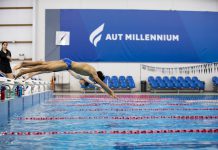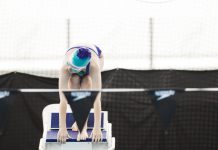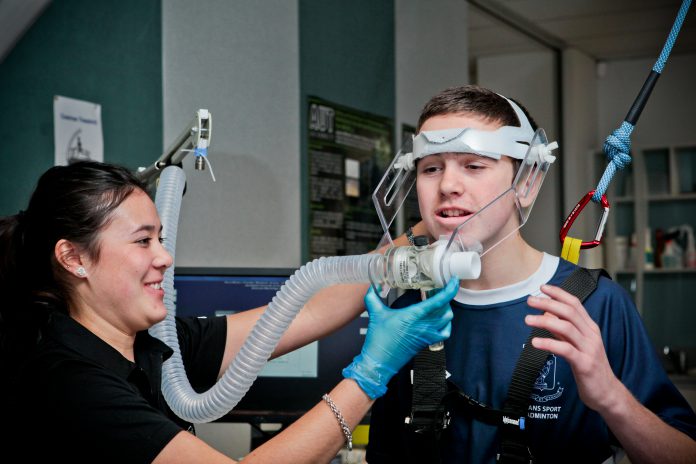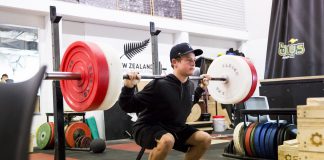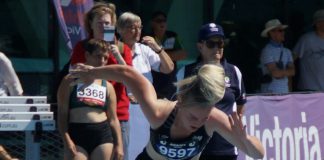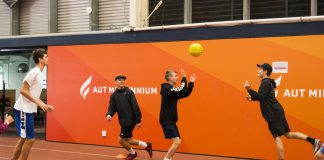My final two years at secondary school were an exciting time in my life. I was having great success in my sport as a track hurdler, academically I was passing well and I had a tight group of good mates who always had my back. However, it was also a time of difficult decisions – most of all, what next? Transitioning out of the safe, secure environment of the school yard to the big wide world was a daunting prospect. It wasn’t until I had a lunchtime conversation with my 7th Form PE teacher that I decided to apply for the physical education degree at the University of Otago. Looking back now, I think it was a fairly brave decision. I’d be leaving the comforts of home and everything I knew to venture down south for four years of study, without any of my closest friends, on the premise that the ‘scarfie’ student life was worth the effort. On reflection, it was the best decision I ever made.
Things clicked for me and it was a seemingly easy decision. Why? To be honest, I’m not sure. But what I do know is that back then I loved sport. I loved everything about it – playing it, watching it, wanting to be like those who were doing it best. I also liked science. Discovering how the physical world worked excited me and it made sense to study these things. Where exactly my degree would take me I was unsure of, but at the time it didn’t matter, I’d work that out later on. Move forward 15 years and things haven’t changed much. Students are still signing up for sports science degrees because they love sport and are not too sure what else to do.
To make the most of a new opportunity like university study, and set yourself up for success, you need to know exactly what you’re signing up for and all the possibilities that may lead from it.
So, if you’re in your final year at school, love sport and science, but are struggling to know how to turn your passion into a career, here are 3 real-world jobs in sports science going on at AUT Millennium. You’ll see why it’s such an exciting industry to be involved in.
- Strength & Conditioning Coach:
What will you do? Prescribe exercise programmes for elite athletes to build strength, speed, agility and fitness to maximise their physical capacities. You’ll also work hard to prevent athletic injuries from occurring, and return athletes to their sport as quickly as possible when they do. You’ll work with force plates, accelerometers and GPS units to test and monitor athletes.
Example activities:
- Strength and power training for Lisa Carrington or Valarie Adams
- Team fitness training for NZ Woman’s Rugby Sevens or the Football Ferns
- GPS monitoring for the Black Sticks or the Silver Ferns.
- Exercise Physiologist:
What will you do? Prescribe and monitor the training of endurance-based athletes to optimise their ability to sustain high-intensity exercise for longer e.g. rowers, road cyclists, triathletes and long distance runners. You’ll spend lots of time in the exercise lab conducting tests using treadmills, bikes and rowing machines. You’ll work with heart rate monitors, take blood samples, and test athletes at altitude and in hot environments to help them to perform at their best in difficult circumstances.
Example activities:
- VO2max testing for top runners
- Lactate threshold testing for top rowers
- Heat acclimation training for international triathletes going to compete in hot environments.
- Biomechanist:
What will you do? You’ll support elite athletes and their coaches in their day-to-day training and competition by analysing the technical aspect of skills and activities and providing scientific feedback that will enhance their performance and reduce the chances of injury.
Example activities:
- Analysing video of a top high jumper to find the best angle for take-off.
- Analysing the smash shot of a badminton player to find the best height and angle for the racket to impact the shuttle cock.
- Analysing and correcting the running technique of a top triathlete who is frequently plagued by injury.
Your turn
Deciding on the road to your future is tough, no doubt about it. The best thing you can do is follow your passion and find out as much as possible about the roads that can lead you there.
For inspiration, check out our student experiences here at AUT Millennium to see what the sports science world has to offer.













